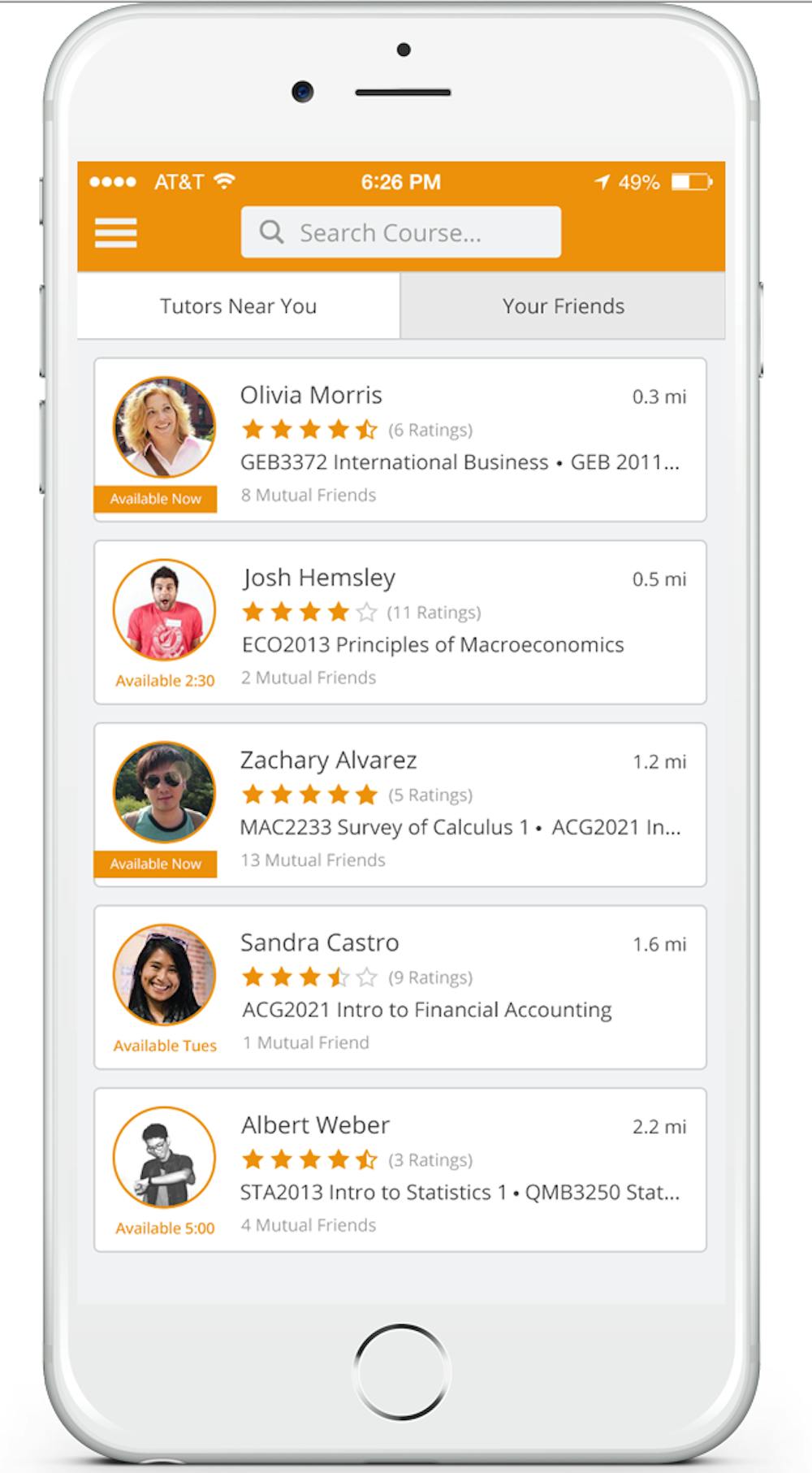A new iOS app launching in March will make tutoring easier by finding nearby student tutors.
UF alumnus Samyr Qureshi is leading the development of an on-demand, peer-to-peer, college-tutoring app called Knack.
The 22-year-old originally came up with the idea of a peer-learning marketplace when he tried to learn picking patterns for a new song on his guitar.
“I knew there had to be somebody in my city that could probably give me some pointers and help me with the picking technique,” he said. “Then I thought, ‘How great would it be to have someone come over and help me with whatever it is I want to learn?’”
Knack is designed to recommend tutors based on three things: proximity, social connections and user reviews.
On the app, students select the tutor, time and location from the list of designated KnackSpaces, whether it is on or off campus. These KnackSpaces were designed with safety in mind and are usually in areas with cameras.
Once everything is established, the tutor will then be notified of the request and will be prompted to agree.
“Our team has a knack for design and we work to ensure the app is as simple and user friendly as possible,” he said.
Students also have the option to be the tutor. Any student who receives a B-plus in a course can be a tutor. Additionally, any student enrolled in a course who receives an A on the first major exam can tutor others in that same course.
To become a tutor, students must make a profile, select a class and time to tutor and provide proof of proficiency by uploading a picture of test grades or transcripts, Qureshi said.
Students also earn money by tutoring. Prices are fixed at $5 for 15 minutes, and there is no time limit to a session. After the selected time expires, the money automatically transfers into the tutor’s account, said Dennis Hansen, co-founder of Knack.
Sharing the tutoring experience is essential to Knacks’ success. After each tutoring session, students are required to rate their tutor out of a 5-star system.
“Empowering one another to share skills and abilities almost seems like utopian in my mind,” Hansen said. “Cutting out large profitable institutions and relying on each other is more personable and mitigates the risk of being taken advantage of by a corporation.”
[A version of this story ran on page 5 on 2/9/2015 under the headline “UF alumnus develops peer-tutoring app, expected to launch in March"]






